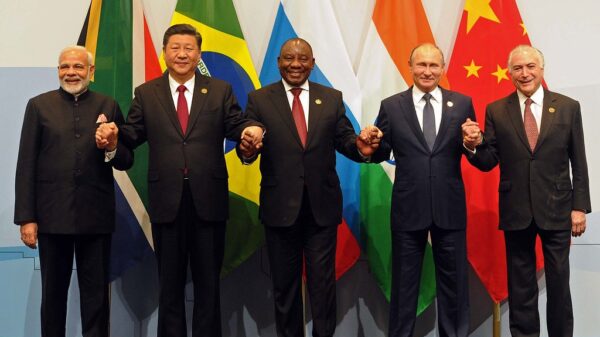Staff Writer Abhinav Poludasu explains the recent devestating events in Manipur and condemns the government’s lack of action in the divided state.
As the fleeting headlines flicker across the screens of casual news viewers at 9pm every night, many may have brushed off the violence in Manipur, a state in North-east India, expecting it to be just another story. We presumed that in a matter of weeks, the turmoil would dissipate, and life would return to normalcy.
We were wrong.
Instead, the situation has taken a harrowing turn for the worse, and what’s unfolding in the Indian state of Manipur demands nothing short of our utmost attention and concern. We are faced with a pressing and urgent issue of accountability, laying bare the failures of both the central and state governments. The atrocities committed cannot be overlooked, and it is high time to confront the grim realities that plague Manipur.
For the unaware, Manipur finds itself in a relentless conflict between its minority Kuki community, residing in the hills, and the majority Meiteis, inhabiting the plains. The spark that ignited this violence was a Manipur High Court order demanding that the Manipur state government examine the possibility of granting Tribal status to the Meiteis, akin to the privileges already enjoyed by the Kuki community. But this seemingly innocuous move has thrown the region into chaos, as the Kukis rose with vehement opposition, voicing legitimate apprehensions of their very existence being threatened. The Meiteis acquiring Tribal status grants them unhindered access to lands occupied by the Kukis. As one would expect, the Kukis were not on board with this, as they fear that the economically privileged Meiteis might acquire their lands and force them to be displaced. Additionally, a few months ago, the Meitei-dominated government launched a crackdown on drug cultivation on reserved and protected forest areas, where the Kuki community resides. This action was deemed excessively heavy-handed and only served to deepen the sense of resentment within the Kuki community, as they felt targeted and persecuted by the government.
The consequences of this is nothing short of catastrophic for the Kukis, as they face the chilling prospect of being wiped out, their rich heritage and identity engulfed by the sweeping tide of change. If you want to learn more about the reasons behind and extent of the violence, my piece for Roar is a great place to start.
Till now, the violence has left a trail of devastation, claiming over 180 lives and displacing over 50,000 people from their homes in Manipur.
The situation has gone from bad to worse. The circulation of a viral video filmed in Manipur and which depicted a distressing scene of numerous men engaging in the public parading and assaulting of two naked Kuki women, has elicited widespread outrage across the nation. The unspeakable ordeal which the two Kuki women were subjected to has since shocked the collective conscience of Manipur. The harrowing incident is not just a grotesque act of violence; it is a stark reflection of the systemic failure of both the state and central governments to protect its citizens.
The viral video which captured the heinous attack then captured the attention of the country at wide, sending shockwaves throughout India, causing an outpouring of rage and grief. Yet what adds to our collective despair is the realisation that this act of savagery occurred more than 70 days ago and the authorities chose to turn a deaf ear to the cries and wails of the victims until public pressure forced their hand. For these 70 days, justice was elusive for the victims, as the wheels of the system ground to a halt.
Here’s another disturbing fact: the fact that unfurled the terror and goaded the frenzied mob to unleash their wrath upon the two defenseless women turned out to be fake news. A grotesque image of a woman shrouded in plastic circulated with the audacious claim that it depicted a Manipur woman. Yet, it was later revealed to be a photograph of an older and equally tragic incident – the chilling tale of Aayushi Chaudhary’s honor killing in Delhi in November 2022. This poor woman’s life was taken by her own parents and her remains were discarded within a red trolley bag near Yamuna Expressway in Uttar Pradesh, a Northern Indian state. This unrelated incident therefore served as the catalyst for the calamitous chain of events that culminated in the horrific incident which has now shook India.
Adding to this horror, one of the women in the viral video alleges that the police handed them over to the very mob that unleashed the violence, a mob hailing from the majority Meitei tribe. This raises serious questions about the impartiality of the police force and the deeply rooted biases that plague the society of Manipur. The duty of the police is to protect and serve all citizens equally, not to be complicit in their victimization based on their ethnicity or tribe.
Astonishingly, the government’s initial response to the distressing video was not one of shock or accountability, but rather a directive to social media companies to remove the evidence under Section 69A of the Information Technology Act, 2000, which gives the government the power to issue content takedown orders to online intermediaries when content threatens India’s sovereignty and integrity, friendly relations with foreign states, or public order. If the government holds public decency in high regard, why did they fail to act swiftly when it truly mattered? By not doing so the government allowed Manipur’s tragic bloodshed to persist for more than 70 days. Over this period of absolute silence and inaction, riots and ethnic violence plagued the state, which led to over 180 deaths and over 50,000 displaced.
In his long-awaited response to the harrowing incident that unfolded in Manipur, Prime Minister Narendra Modi addressed the nation, expressing profound anguish and outrage over the shameful act. He spoke of the incident as a “stain on the collective conscience of 1.4 billion Indians”, a grievous offense that could never be absolved. The Prime Minister assured the nation that the “full force of the law” would be brought to bear upon the perpetrators, leaving no room for mercy or pardon.
In addition to condemning the violence in Manipur, the Prime Minister urged all Chief Ministers to prioritize strengthening law and order, emphasising the paramount importance of safeguarding women’s safety across the country. Setting aside political differences, he called for a united effort to protect women in every state, be it “Rajasthan, Manipur, or Chattisgarh.”
It took over 70 days after the rape and the parading for the police to swing into action. Manipur’s Chief Minister Biren Singh said that there were over 6000 FIRs (First Information Reports) that were still pending as the violence continues. Having so many outstanding reports indicates that the police have disregarded a meaningful investigation or resolution of these cases. The question of why this negligence persisted remains unanswered, as Chief Justice of India, D.Y. Chandrachud, directly confronted the Manipur and the Central Government in the Supreme Court, seeking an explanation.
Meanwhile, it has been reported that there was an agonising delay between transferring the case between the police stations. The police’s inaction during those days speaks volumes about the rot that has seeped into our law enforcement agencies. Manipur just turns out to be another glaring display of this rot. The trust that we place in them to uphold the law and protect the vulnerable has been shattered. By allowing the perpetrators of the tragic assault to evade justice for more than 70 days, the police have emboldened criminals, reinforcing the belief that they could commit such heinous acts with impunity. The blood of the victims is not only on the hands of those directly responsible but also on the hands of those who chose to look away when they should have acted swiftly and decisively.
This ignorance of a crime until it’s mainstream is, however, not unusual in India. The most recent incident that comes to mind is the Kathua rape case that involved the kidnapping, rape and murder of an 8-year old girl, Asifa Bano, by six men and a juvenile in January 2018. The case was not widely known until a few months later in April when the details of the crime were disseminated on social media platforms. As the news of the heinous act spread like wildfire across the internet, public outrage grew exponentially. People from all walks of life, including activists, celebrities, and concerned citizens, took to social media to demand justice for the victim and her family. Hashtags such as #JusticeForAsifa became viral trends, putting immense pressure on the government to take action.
What kind of society do we live in when the cries of our own people fall on deaf ears until they resonate in the digital realm?
The Manipur state and central governments’ delayed response to this tragedy is an insult to the principles of justice and accountability. It is only when the video reached every corner of our digital landscape that they were spurred into action, faced with no other option but to apprehend the accused. This smacks of opportunism and callousness on their part, as they prioritized their political calculations over the cries of the suffering.
The Indian Parliament is another witness to yet another disheartening tale. Both the Lok Sabha (Lower House) and the Rajya Sabha (Upper House) frequently adjourn and remains paralysed (ie. not able to discuss affairs of the people) as the opposition demand a more expansive debate suspending all business, also imploring Prime Minister Narendra Modi to confront the government’s failure to act upon the violence in Manipur. However, the ruling Bharatiya Janata Party (BJP) offers mere lip service, claiming they are “ready to discuss about Manipur” but then agreeing to only “a short-duration discussion” on Manipur. They persist in turning a blind eye to the anguished pleas of Manipur, pleas that fervently demand an end to all violence and destruction of life and property inflicted by both sides.
In the Lok Sabha session on the 24th of July, Lok Sabha Speaker Om Birla questioned the opposition’s elected representatives, daring to challenge whether their mandate as representatives was to raise slogans against the government.To that query, I unequivocally respond with a resounding “yes.” The people placed their trust in these leaders, sending them to Parliament to demand accountability, transparency, and justice – values that the government has sorely failed to uphold.
Instead of taking responsibility for their shortcomings, the government, in an appalling display of complacency, allows the opposition’s cries to fall on deaf ears. The yearning for justice remains unmet, as the government hesitates to take the necessary steps to right the wrongs and bring solace to the grieving hearts of Manipur.
Prime Minister Narendra Modi’s late and much-criticized response to this tragedy further highlights the disconnect between the government and the people it claims to represent. His solemn assurances of justice and punishment ring hollow when we consider the months of silence that preceded them. It is not enough to make promises when it is politically convenient; true leadership requires proactive measures to prevent such horrors from occurring in the first place.
His attention from violence in Manipur to states like Rajasthan and Chhattisgarh, most notably controlled by the Indian National Congress (INC, or Congress) is a glaring display of their political shrewdness. By diverting public focus to Rajasthan and Chhattisgarh, they hope to absolve themselves of their own failures in Manipur. This strategy is an insult to the intelligence of the few citizens who see through their hollow attempts to manipulate the narrative.
As of 30th July, in a bold move, Congress’s prominent North-east leader, Gaurav Gogoi, initiated a No Confidence Motion against the government, marking the second such motion against Modi’s government. Standing in solidarity, the opposition alliance INDIA (Indian National Developmental Inclusive Alliance), led by 26 opposition parties against the BJP, has united behind this pivotal decision, intent on using the ensuing debate as a platform to shed light on the harrowing issue of ethnic violence in Manipur. Their goal is clear – to exert relentless pressure on the government to address this grave matter not only through the Union Home Minister, Amit Shah, but also forcing the Prime Minister Narendra Modi to speak on Manipur within the chambers of the Parliament itself. Lok Sabha Speaker Om Birla has accepted the no-trust motion, affirming that the matter will be granted the time and attention it deserves for thorough deliberation.
As a nation, we cannot let the cries and wails of Manipur fade away into oblivion. We must demand more than mere words and platitudes from our elected leaders. We demand accountability, transparency, and immediate action. While there has been a growing call for a President’s Rule (that involves the dissolution of the state government with the central government taking its place) in Manipur, the BJP and the central government see this as a “final resort”, and said that they would continue to monitor the situation in Manipur for now. What I ask for is even simpler: a government that protects its vulnerable and upholds the dignity of all its citizens.
However, what is happening in Manipur is nothing short of an abomination, and must be a cause of concern to the international community, for the unaccountability of the Central Government in India and the state government in Manipur continue to fail the people.
Let us ensure that this tragedy will be the catalyst for change, as we raise our voices in unison and hold the government accountable for its negligence and apathy. Let us stand united in our anger and displeasure, determined to build a society where such horrors are unimaginable, and where the cries of our people are never again ignored or forgotten. Only then can we begin to heal the wounds that this tragedy has inflicted on our nation’s conscience.















